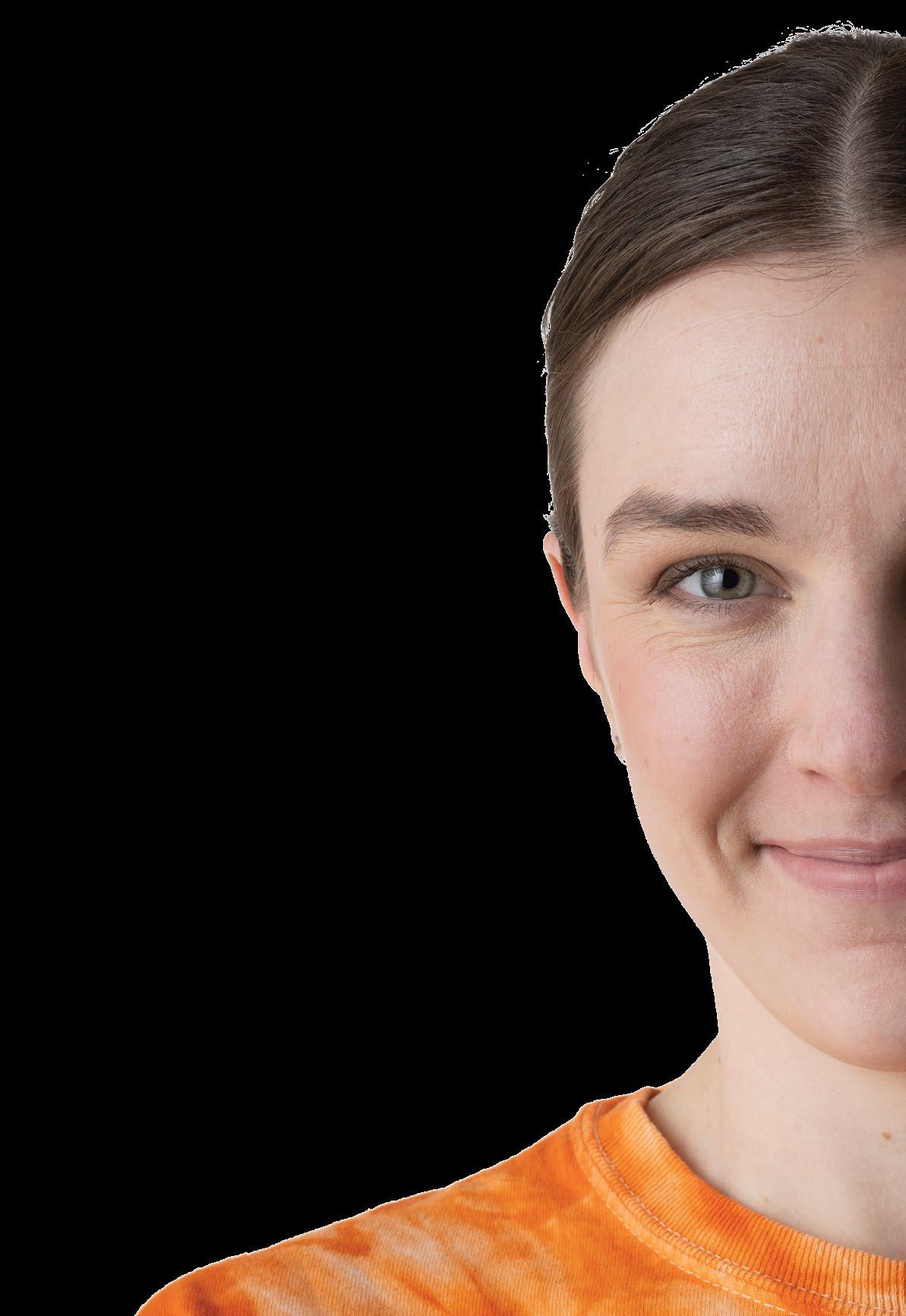
2 minute read
RESEARCH ROUNDUP More News from Wilmot’s Bench
SURVIVORSHIP CHALLENGES among young people who had cancer is a critical area of research. As someone who faced leukemia at age 22, Wilmot scientist AnnaLynn Williams, Ph.D., knows this all too well.

In a new study that she led, a research team found signs of accelerated aging in young adults that was consistent with very early dementia symptoms. In fact, among 215 childhood Hodgkin lymphoma survivors who are now in their 30s, results showed that, biologically, a majority are an average of 7.7 years older than peers who never had cancer. The aging tended to impact memory most often. The American Society of Hematology (ASH) showcased Williams’ data in December 2022 at the ASH annual meeting and in a special press event.
What can be done? Williams is studying ways to intervene in the aging process but says that young cancer survivors can help themselves in the meantime by adopting a healthy lifestyle and keeping up with recommended health screenings.
“Try to be active, quit smoking, eat healthy, see your primary care physician to get proper testing, and exercise your brain,” she says — adding that it’s important to mix up activities and push yourself to stay social and connect with others. Williams is an assistant professor and part of Wilmot’s Cancer Prevention and Control research program.
FOR THE FIRST TIME in nearly 20 years, an advance has been made against aggressive brain cancer — and Wilmot was part of the discovery.
Researchers tested a personalized cancer vaccine made from a patient’s own immune cells and antigens from the tumor. In a phase 3 nationwide clinical study, the vaccine extended the life of individuals with newly diagnosed glioblastoma for a median of 22.4 months, and 13% of patients survived at least five years. Typically, patients can live for only about 15 months after diagnosis with this lethal brain cancer. People with a recurrence of glioblastoma also took part in the study and their survival was extended for an additional four to six months.
Kevin Walter, M.D., a Wilmot investigator and professor of Neurosurgery and Oncology, led the multi-site study locally. “Brain cancer is such an aggressive disease, and so many diverse treatments have failed in clinical trials. It is gratifying to be able to help advance a potential new treatment option for patients,” he says.
“Clinical trials, like this one, provide local and regional patients with access to promising novel treatments and help us advance medicine and cancer care for all,” adds Wilmot Director Jonathan Friedberg, M.D.
The vaccine, known as DCVax-L, is a product of Northwest Biotherapeutics. The clinical trial involved nearly 350 patients across the U.S., with more than 2,100 doses administered. The treatment was tolerated well, according to the study results reported in the journal JAMA Oncology. The FDA is working with researchers and the company to find the best way to bring the treatment to more patients.










